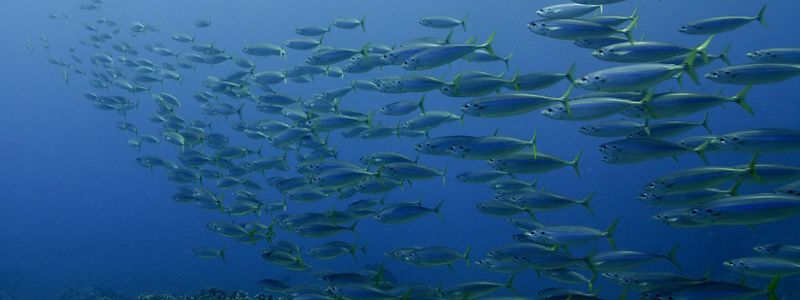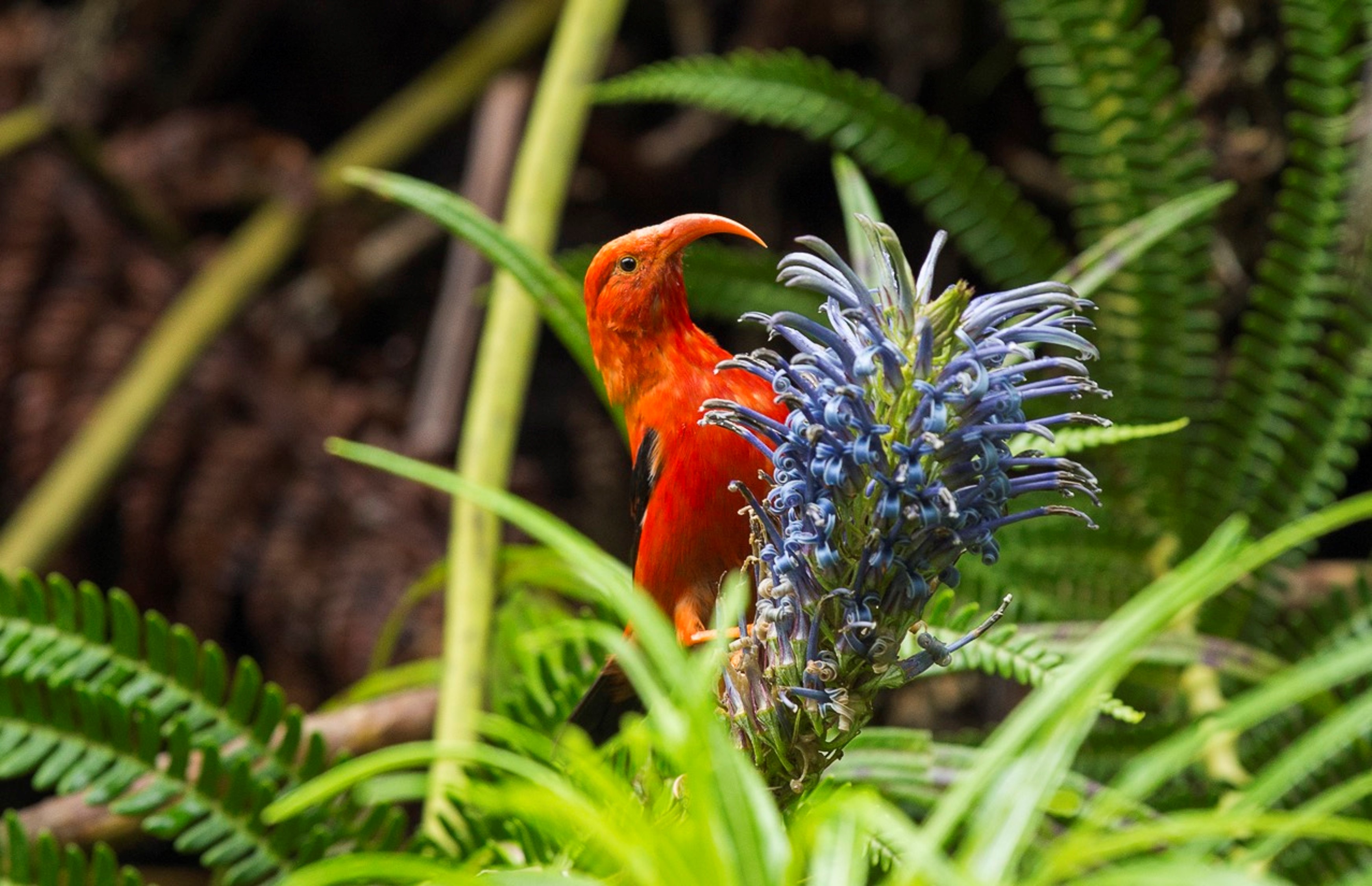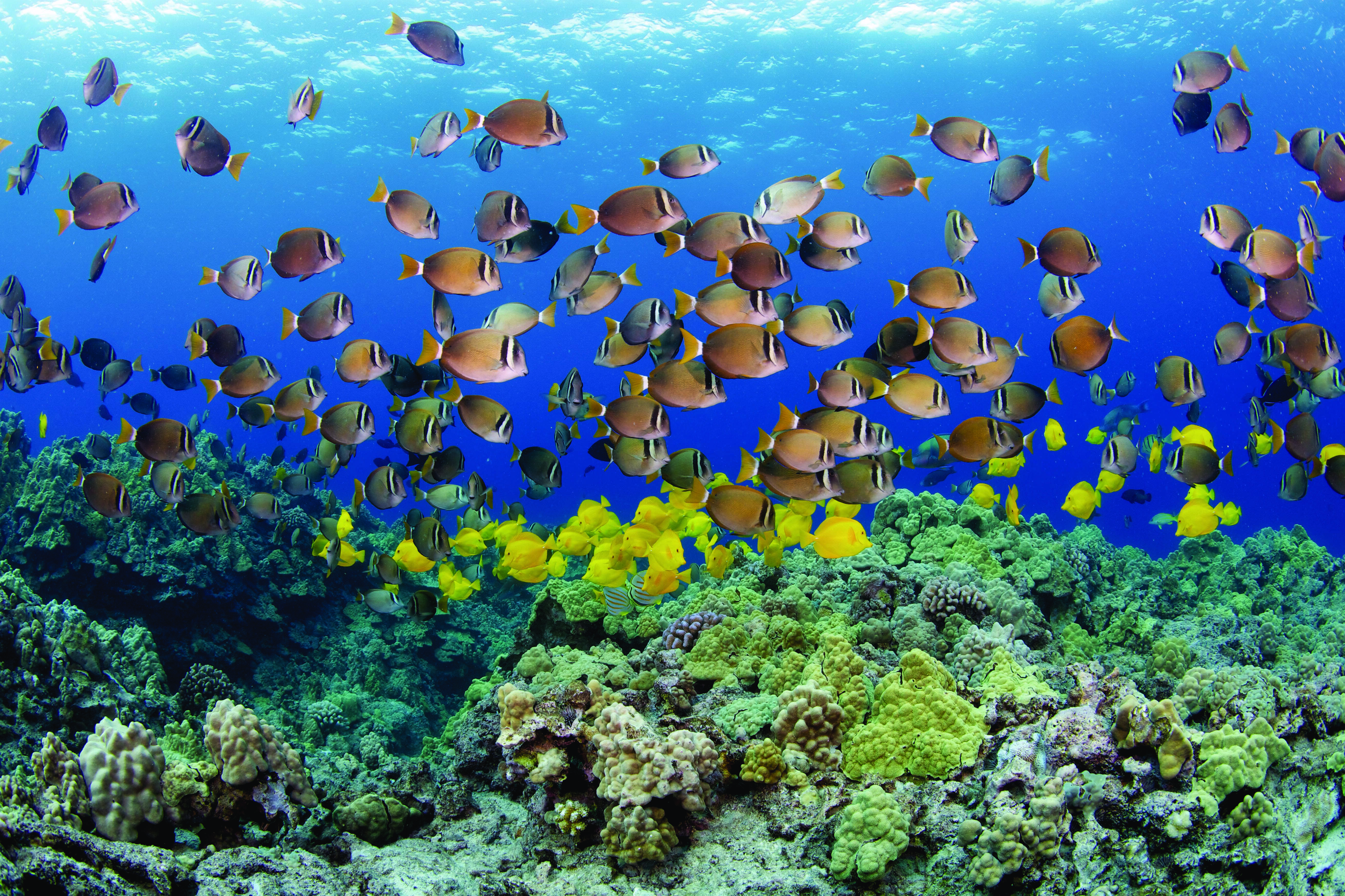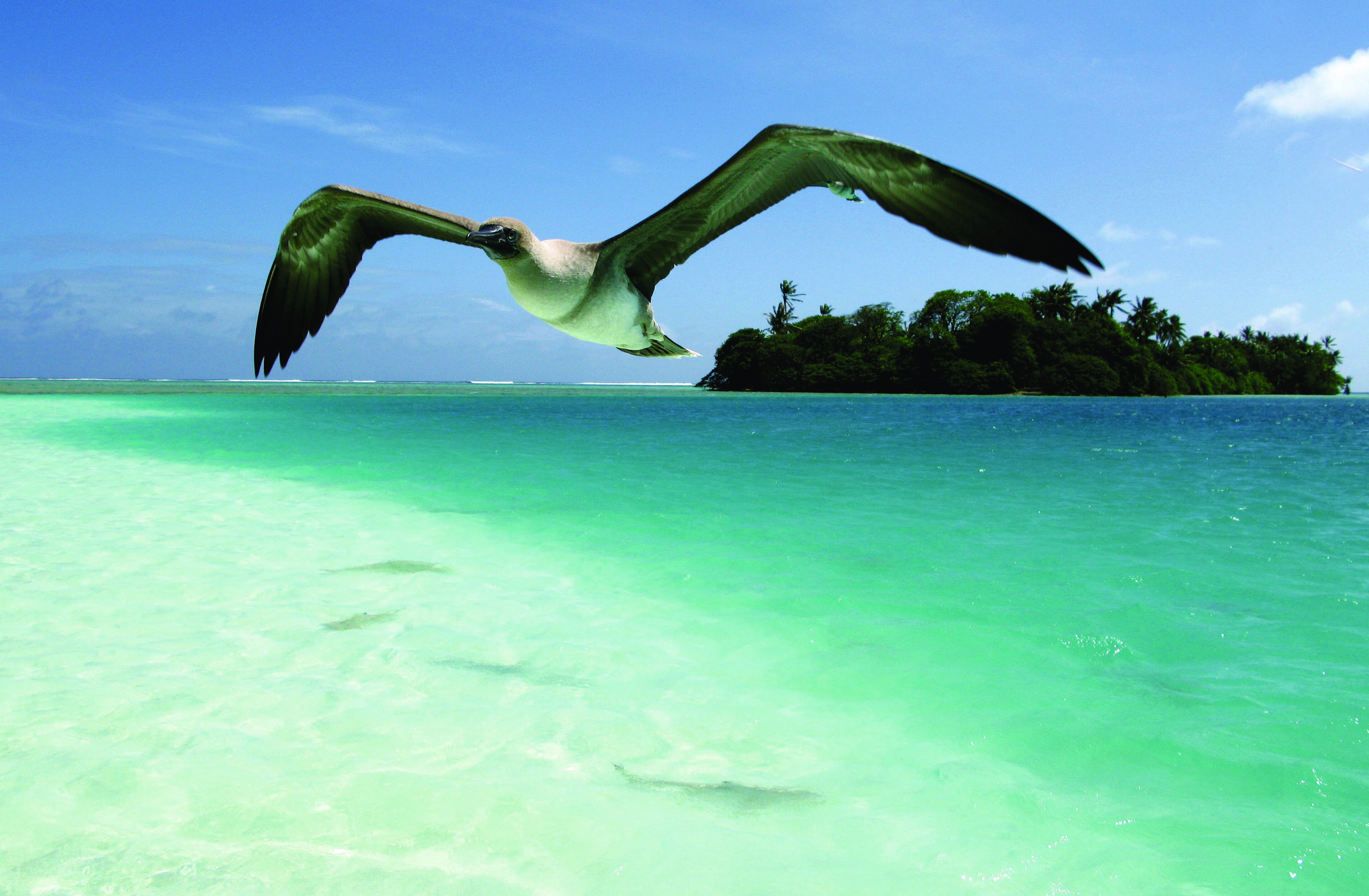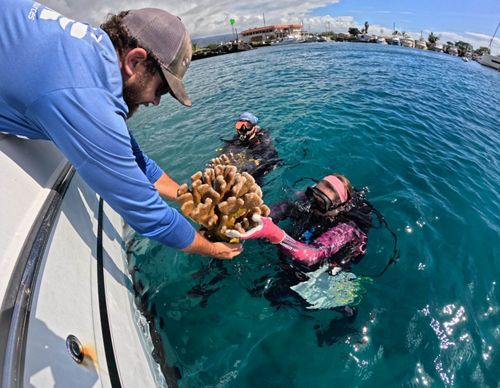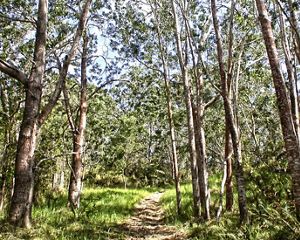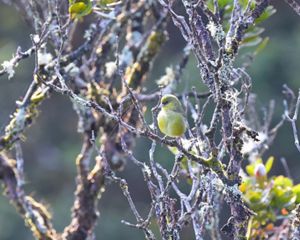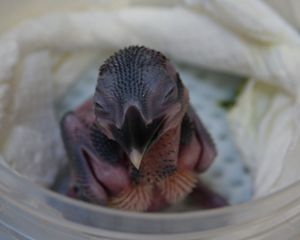Make a Difference in Hawai‘i and Palmyra
The Nature Conservancy works with people like you to protect Hawaiʻi’s and Palmyra’s spectacular diversity of life. Together, we can protect the plants and animals that share our world and support our well-being. We invite you to join the effort.
Support Care for ‘Āina Now
Help pass natural resource funding this year. Tell your legislators you support passing an environmental stewardship fee to close Hawaiʻi’s $560 million conservation funding gap.
Our Kuleana
Conservation is our nature and nature is our kuleana. Working with our partners—from communities to government agencies to businesses and donors—we mālama 14 preserves and help protect other sites across the Hawaiian Islands and at Palmyra Atoll.
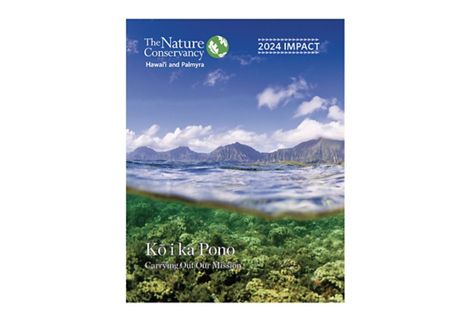
2024 Impact Report
Read about the latest successes you helped us achieve.
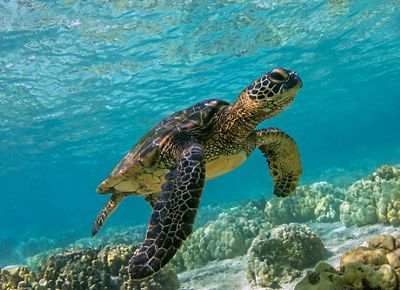
See the Places We Help Protect
Working with our partners—from communities to government agencies to businesses and donors—we manage 14 preserves and help protect other sites across the Hawaiian Islands and at Palmyra Atoll.
Resources
Read more about our work in Hawai'i and Palmyra
-

2024 Fall Newsletter
Read about the latest successes you helped us achieve. Download the newsletter
-
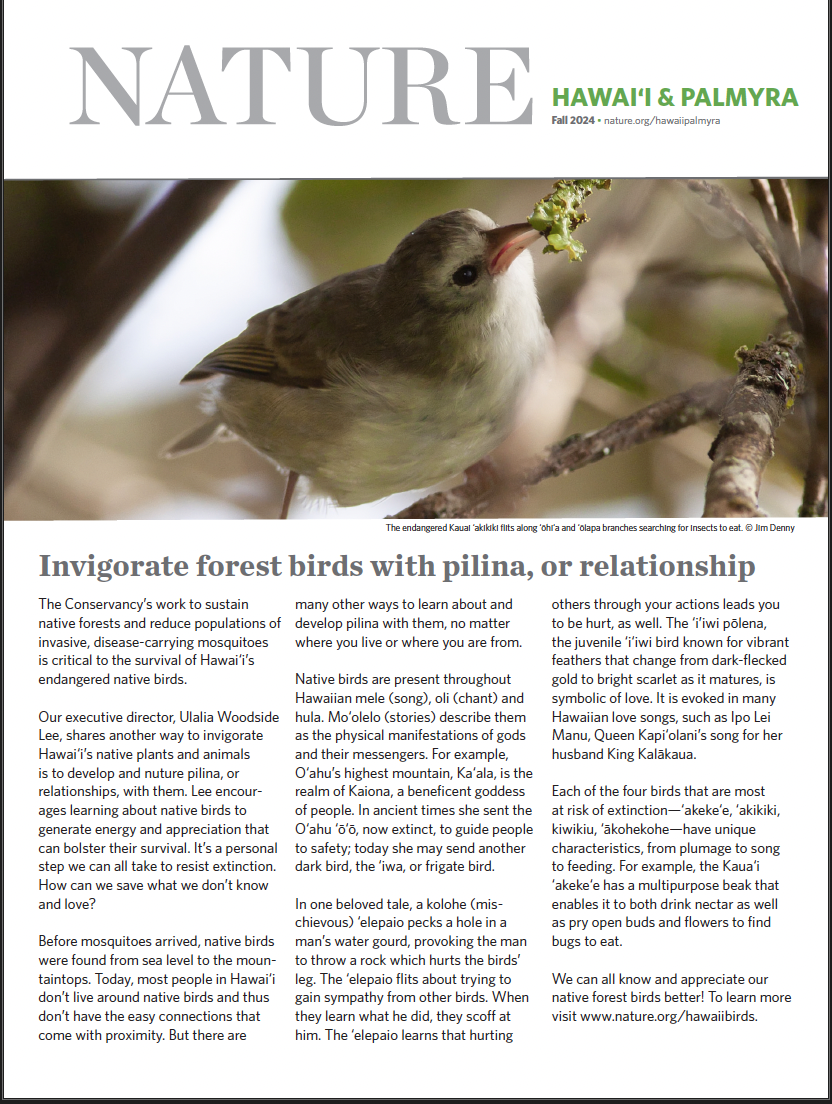
Fall 2024 Nature News
Read about our latest work connecting Mauka-Makai at Olowalu. Download the newsletter
-
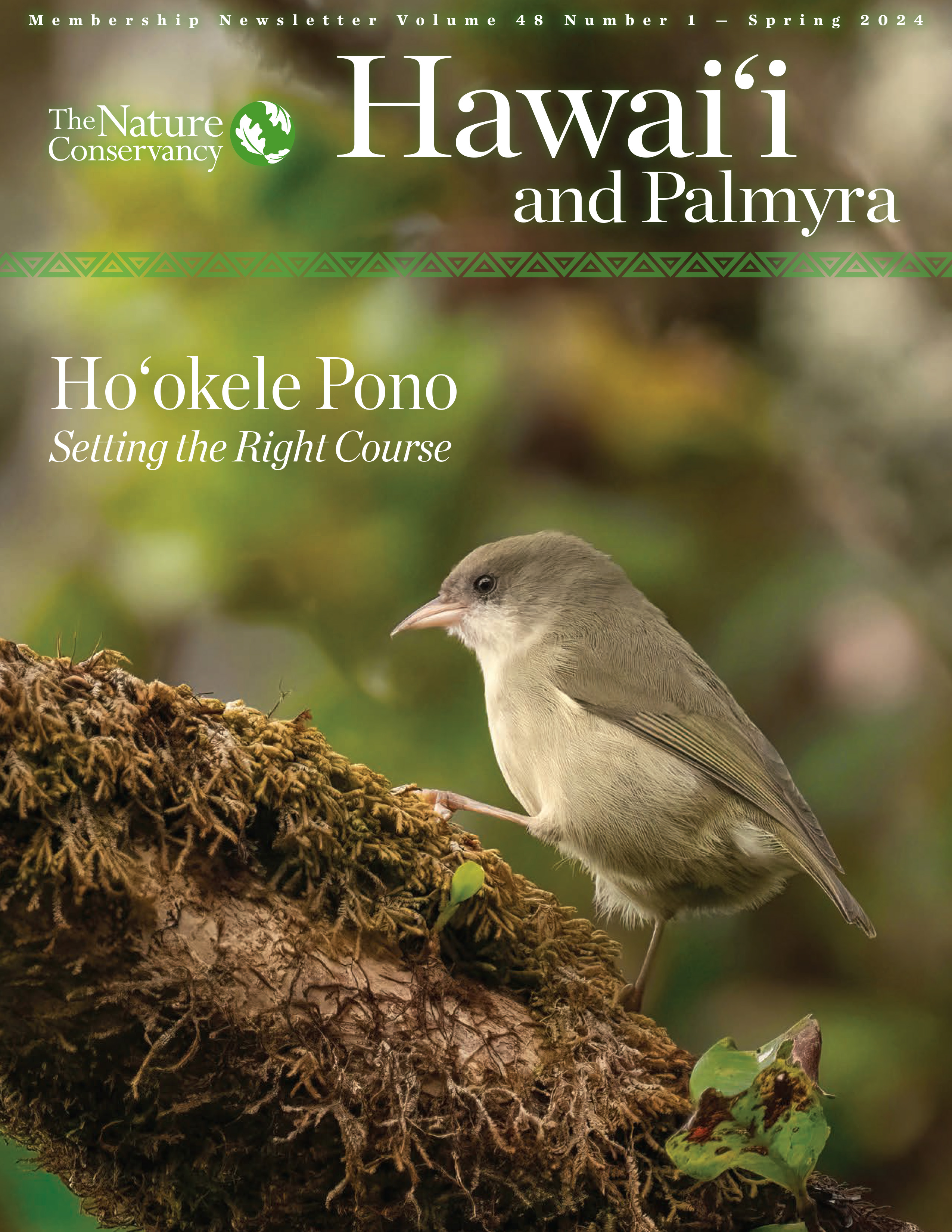
2024 Spring Newsletter
Setting the right course for conversation. Download the newsletter
-
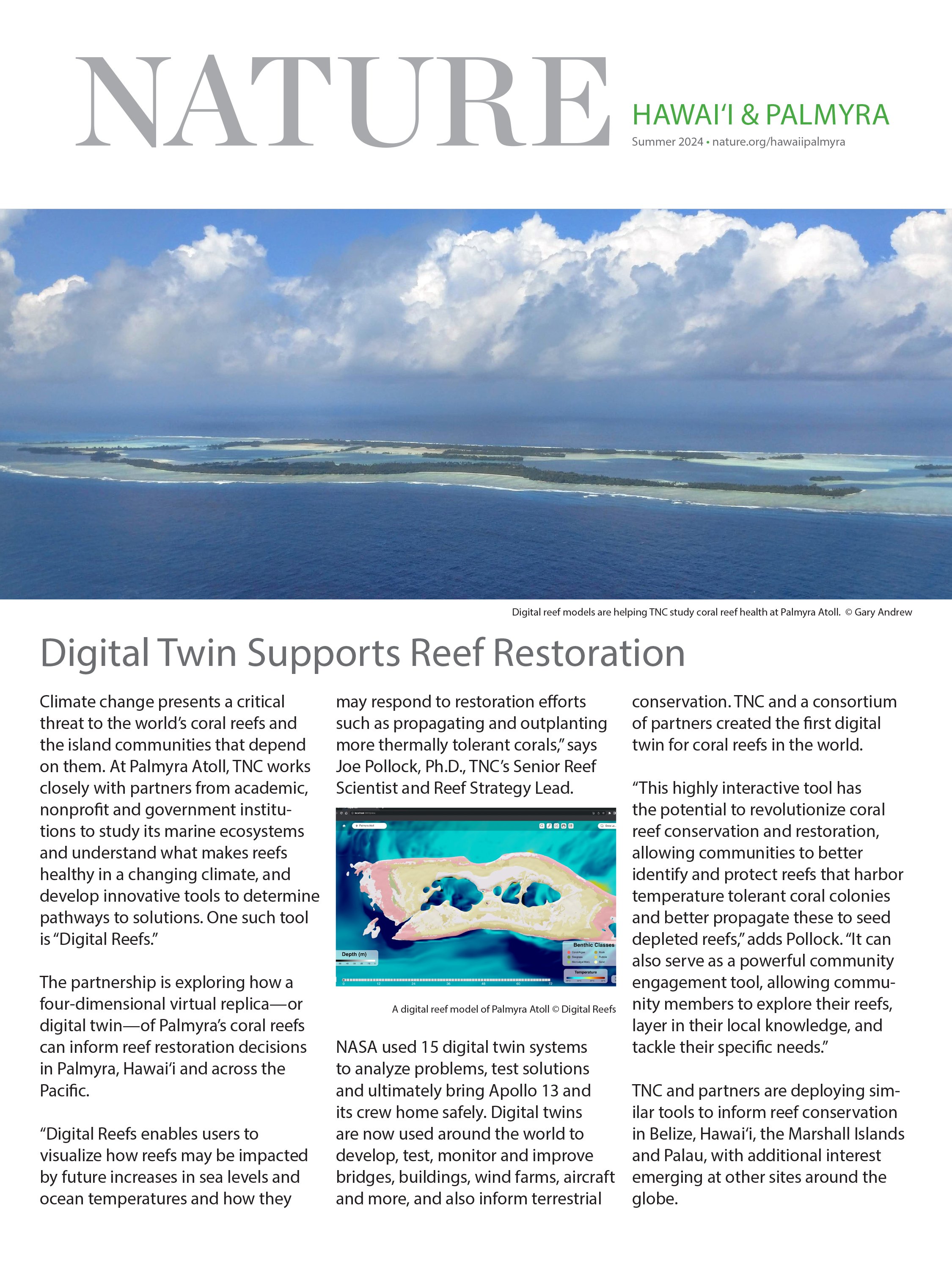
Summer 2024 Nature News
Read about our latest work to restore reefs. Download the newsletter
We Can’t Save Nature Without You
Sign up to receive monthly conservation news and updates from Hawai’i & Palmyra. Get a preview of Hawai’i & Palmyra’s Nature News email.
